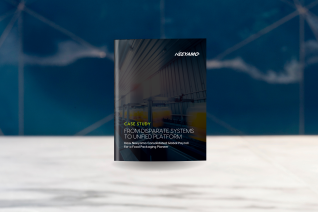Establish your presence globally with Neeyamo as we help you go beyond borders to manage your international payroll and hire new talent in Liberia.
Overview
Liberia, also known as the Republic of Liberia is a country on the coast of West Africa. The Atlantic Ocean surrounds it on the south and southwest, Guinea to the north, Ivory Coast to the east, and Sierra Leone to the northwest. The prominent industries in Liberia include agriculture and mining.
If your organization’s expansion plans require you to hire employees in Liberia and you lack a physical entity in the country – a key requisite to hire local talent, your solution is right here with Neeyamo. Neeyamo's global payroll solutions provide assistance for the onboarding and management of employees in Liberia, along with the processing of a firm's payroll accounting and tax services, handling payroll risks and controls, compliance, benefits, and more.
Tools And Instances
Facts And Stats
Capital
Monrovia
Currency
Liberian Dollar (LRD)
Official Language
English
Fiscal Year
1 January - 31 December
Date Format
DD/MM/YYYY
Country Calling Code
+231
Time Zone
UTC+0
Global Payroll
Overview
Handling payroll for a widespread workforce can pose as a major challenge for any firm. The added complication of compliance can make things worse and drastically effect the time and efforts that can be used in other equally important aspects of an organization's development.
Over the years, Neeyamo has observed these complexities and strived to provide a global payroll solution through a single technology platform, Neeyamo Payroll.
Payroll Taxes
Payroll tax is the percentage amount retained from an employee's salary and paid to the government to invest in the welfare of the general population.
Employee Taxes
Employee Contribution - 4%
Annual Income tax rates (amounts in LRD)
| Income | Rate |
|
Upto 70,000 |
NIL |
| 70,001 to 200,000 | 5% of the excess over 70,000 |
| 200,001 to 800,000 | 6,500 + 15% of the excess over 200,000 |
| 800,001 and above | 96,500 + 25% of the excess over 800,000 |
Employer Taxes
- Employment Injury Scheme (EIS) - 2%
- National Pension Scheme (NPS) - 4%
Employer Total Contribution - 6%
Payroll Cycle
Overview
Undoubtedly, payroll is a critical aspect of any organization. The Pay cycle is a notable feature of it that provides a sense of accountability for an employee to be paid consistently for their work.
Frequency
Employees in Liberia are paid at least once every month.
13th Month Cycle
There is no statutory requirement to pay the 13th or the 14th month salary.
Global Work
Overview
An Employer of Record service provider helps you get rid of the hassle of handling the complexities that come with setting up a new employee in remote locations. They act as legal employers, facilitate salary payments, and handle everything from health insurance. payroll taxes, and employee benefits to comply with local tax laws and regulations.
This ensures that the client company can focus on the employee’s everyday tasks safely in the knowledge that they have a cost-effective solution as they continue their global expansion.
HR Mandates and Practices
Minimum wage
All formal sector (concession, industry, business, company, etc.) employees are entitled to a minimum wage of US $5.50 per day, or US $0.68 per hour, while domestic and casual workers are entitled to a minimum wage of US $3.50 per day, or US $0.43 per hour.
Overtime
Employers can require employees to work up to five extra hours per week, with any overtime paid at least 50% above the normal rate. Alternatively, employees and employers can agree in writing to compensate overtime with extra paid time off at the regular rate of remuneration.
Data Retention Policy
Every person with a tax obligation should maintain books and records in English language and must be retained for 7 years after the end of the tax period to which they relate.
Hiring and Onboarding Requirements
Hiring
When hiring candidates in Liberia, employers typically use employment contracts to formalize the terms and conditions of employment. These contracts outline important details such as:
- Job Title and Responsibilities
- Compensation
- Duration of Employment
- Work Schedule
- Termination Conditions
- Confidentiality and Non-Disclosure Agreements
Onboarding
The required employee onboarding documents typically include:
- Personal Identification
- Tax Forms
- Employment Contract
- Banking Details
- Emergency Contact Information
- Work Permit (for foreign employees)
- Social Security Documentation
Probation
An employment agreement can ask the employee to serve a probation period, but it can't be longer than three months.
Leave
Public Holidays
Liberia provides for 11 public holidays.
The following days are statutory public holidays in Liberia:
- January 1 - New Year’s Day
- February 11 - Armed Forces Day
- March 12 - National Decoration Day
- March 15 - Joseph Jenkins Roberts' Birthday
- April 11 - Fast and Prayer Day
- May 14 - National Unification Day
- July 26 - Independence Day
- August 24 - National Flag Day
- First Thursday of November- Thanksgiving
- November 29 - William V.S. Tubman's Birthday
- December 25 - Christmas Day
Annual Leave
Every employee, is entitled to a minimum uninterrupted annual leave period
- 1 week's worth of working days for 12 months of continuous service,
- 2 weeks for the first 24 months
- 3 weeks for continuous service of 36 months
- and 4 weeks for continuous service of 60 months and beyond.
Sick Leave
Every employee is entitled to ten days’ paid sick leave for every year of continuous service with their employer. An employee on paid sick leave is entitled to receive their usual remuneration for that day as if they had worked.
Maternity Leave
Employees are guaranteed a minimum of 14 weeks of maternity leave, with at least 6 weeks required to be taken after the date of confinement. An employed woman is entitled to receive her regular pay for her normal working hours during maternity leave from her employer.
If a medical practitioner certifies that extending maternity leave is necessary for the health of the employed woman or her child due to pregnancy or delivery complications, the employer must grant up to one month of unpaid extended maternity leave, in addition to any other entitled leave.
Paternity Leave
The employed father is entitled to 5 days of unpaid leave following the birth of his child, which must be taken within the first month after the birth, except in exceptional circumstances and not before the mother's confinement. If a man has multiple wives, he cannot take leave for children born to more than one wife and must inform his employer which wife is relevant for this entitlement.
Leave to take care of others
Every employee receives five days of paid leave annually to care for an immediate family member due to their illness, injury, or in the event of an unexpected emergency.
Bereavement Leave
Employees are entitled to 5 days’ paid leave in any year of service with their employer upon the death of an immediate family member. This entitlement does not accumulate over time with the employer, and any unused leave under this provision at the end of employment is not payable.
Termination
Overview
Employers have the right to immediately terminate an employee's employment for grave misconduct. This termination can occur regardless of whether the employment was for a definite or indefinite period in case of substance abuse in the workplace, breaching fundamental rights, sexual harassment, violence or threats towards colleagues or the employer, destruction of property, endangering safety, prolonged unexplained absences.
Indefinitely employed workers can be terminated for just cause, based on their ability to perform their job according to their contract, collective agreements, or relevant regulations, or due to their conduct at work or related circumstances, due to operational requirements or for any reason of redundancy.
Notice Period
After completing probation, employees must be given reasonable notice before termination.
- 1 week, where employee's continuous service is less than 3 months.
- 2 weeks, where employee's continuous service is between 3 to 6 months.
- 3 weeks, where employee's continuous service is between 6 to 12 months.
- 4 weeks, where employee's continuous service is more than 1 year.
Severance Pay
An employee whose employment is terminated because of economic reasons is entitled to 4 weeks of severance pay for each completed year of service.
Visa
Overview
Individuals from countries outside the ECOWAS (Economic Community of West African States) need a visa to enter Liberia.
To work in Liberia, foreign nationals typically must provide certain documents when applying for a visa:
- A valid passport with one blank page and at least six months of validity
- Two recent passport photos
- A completed and signed visa application form
- Proof of medical insurance for the duration of their stay
- Evidence of financial means
- Travel accommodations proof, such as a flight itinerary
- Proof of accommodations in Liberia
- A yellow fever immunization certificate
- A letter from their employer in Liberia, signed by a company representative, detailing employment terms
Additionally, employees need a Liberian work permit, which requires:
- A filled-out application form
- An employment offer from a Liberian company
- A cover letter from the employer
- Two passport photos
- A bank statement from the employer
- A background check from the employee's home country
- Professional qualifications.
The work permit is valid for 1 year.
Employee Background Checks
Legal and Background Checks
In Liberia, employee background verification involves various checks to ensure suitability and uphold workplace integrity. This includes confirming previous employment details such as organization name, positions held, dates of employment, and work performance. Background screening services are utilized to thoroughly vet candidates to verify whether a candidate has any criminal history that could jeopardize the company or its employees. Additionally, professional license or certificate checks verify credentials, including relevant details such as license type and issue dates. Conducting these checks ethically and in compliance with legal regulations is crucial for employers to make informed hiring decisions and protect both their company and employees.
Last updated on April 8, 2024
If you have any queries or suggestions, reach out to us at irene.jones@neeyamo.com
Have Queries? Get In Touch With Us
Get in touch with one of our experts and take a quick demo of our services








